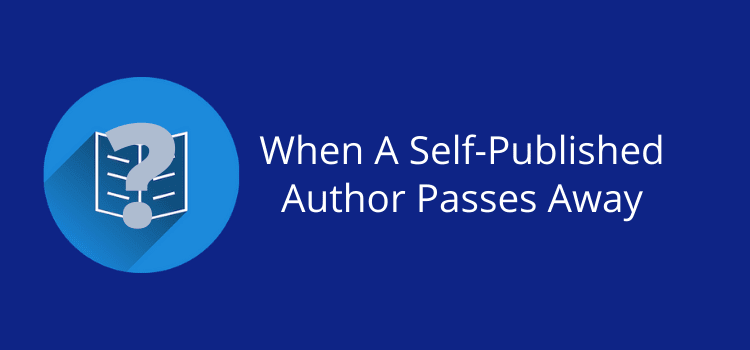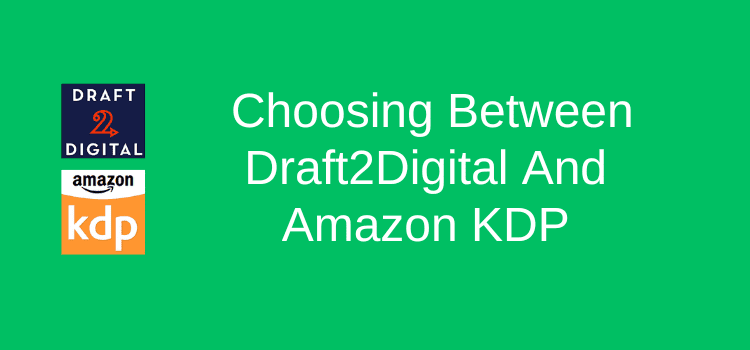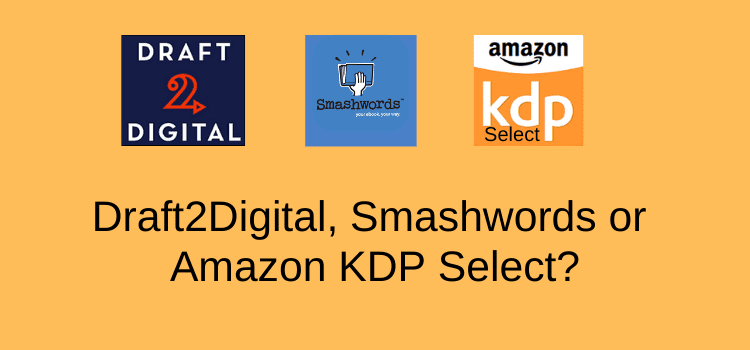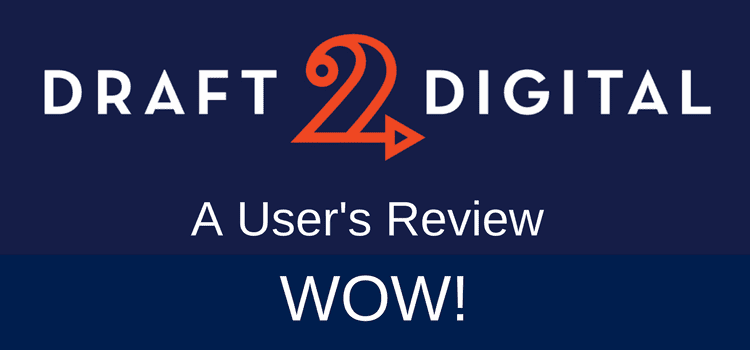
It’s not a question you ask every day, but what happens when a self-published author dies?
For the family of an author, you may want to keep the books available for sale.
In some cases, it’s relatively easy if there is a publishing contract and the publisher is still in business.
However, it is not so simple if the author was self-published.
I must immediately state that I’m not a lawyer. Also, the laws relating to an author’s heirs, assigns, or beneficiaries differ from country to country.
The information I will outline in this article is only of a general nature regarding free self-publishing services.
If you need specific legal guidance and advice, you should definitely consult with a local lawyer.
In general terms, due to copyright laws, literary works do not become public domain books when an author dies.
Copyright lasts for the author’s entire life and continues for another 70 years. It means that successors can continue to sell an author’s work for a long time afterward.
You might think that the law allows for transferring rights and royalty payments for a book or books to an author’s next of kin. Generally, this is often true when an author has a publisher.
A publishing contract usually contains a clause relating to the author’s passing and what action the publisher will take.
In my case, my contract with my publisher contains a clear and easy-to-understand clause.
If the Author should die before all royalties due under this Agreement have been paid, Publisher shall continue to pay said royalties to Author’s heirs, assigns, or beneficiaries.
However, when it comes to agreements with self-publishing services, it is not so straightforward.
There is no clear process
It’s difficult to believe that Amazon KDP and other self-publishing services haven’t established a set procedure after an author’s passing.
Self-publishing is not new anymore, so it’s probably not a rare event by any means.
Unfortunately, there isn’t a clearly defined system or process. There is also no contract, so you need to delve into each provider’s Terms of Service (TOS).
Then, you have to try to understand what each one contains that possibly relates to the death of the author.
I thought it would be relatively easy, but I was wrong. It’s extremely difficult to understand the information in these long legal texts.
Here are the only clauses I could find that possibly cover the situation on the three most popular self-publishing platforms.
Amazon KDP
From section 10.3 Other Legal provisions.
Neither party may assign any of its rights or obligations under this Agreement, whether by operation of law or otherwise, without the prior written consent of the other, except that (a) Amazon may assign any of its rights and obligations under this Agreement without consent and (b) you may assign all of your rights and obligations under this Agreement to any corporation or other entity without consent in connection with the sale of all or substantially all of your assets, but you must give Amazon written notice of the assignment no later than ten (10) business days following the assignment.
You can read the KDP Terms of Service in full here.
Draft2Digital (D2D)
From section 19, paragraph f, General Legal Provisions.
You may not assign any of your rights or obligations under this Agreement, whether by operation of law or otherwise, without the prior written consent of Draft2Digital, except that either you may assign any of your rights and obligations under this Agreement without consent in connection with the sale of all or substantially all of your assets but you must give Draft2Digital written notice of the assignment no later than ten (10) business days following the assignment. Draft2Digital may freely assign its rights or obligations under this Agreement without notice to you.
Read the full D2D Terms of Service.
Smashwords
From section 9. Author and Publisher Warranties.
The warranties and representations contained in this Agreement extend to the Author and its licensees and successors and assigns.
Read the Smashwords Terms of Service in full.
What does it all mean?
Of the three providers, only Smashwords clearly states that it recognizes successors upon the death of a self-published author.
I think KDP and D2D perhaps say something similar, but the text is written in very confusing legalese that is next to impossible to understand.
Interestingly, KDP and D2D use precisely the same wording to ask for written notice within 10 days of an assignment.
However, in all three cases, upon an author’s death, the successor or legal next of kin would need to contact the service provider and ask how to proceed.
On all of the sites, there is no explanation about what this process would involve in the TOS, FAQs, or policies.
But there is a little help and information in this KBoards article on the topic.
The article and comments are a little old now and relate to KDP and Createspace, but the information is still relevant.
In particular, the need to send a copy of a death certificate and perhaps proof that you are the executor.
Contact the service provider
If you are in a situation where you wish to transfer and take control of the book rights and royalties from a deceased author, your starting point is to contact the self-publishing provider.
Ask them what documentation and proof they require and how their process works.
With luck, you may be able to keep the ebooks and books available and receive royalty payments on any sales.
If you wish to remove the books from sale, you will still need to contact the service provider and provide proof that you have the legal right to close the account.
The last option would be to do nothing.
In this case, the books would probably remain on sale until the publishing service cannot pay royalties due to bank accounts being closed.
However, I could not find any mention of this situation in the Terms of Service.
Other actions you can take
If a deceased author shared their self-publishing account login details with a spouse, child, or next of kin, it could help maintain the account for a short while.
If this is the case, you can continue to manage the account. However, you will eventually have to contact the publisher and make the necessary arrangements as a successor.
If you can, you should also contact the bank where the service pays the author’s royalties.
It will be a bank account for Amazon, but for Smashwords and D2D, it may be a PayPal account.
Again, contact these financial institutions and ask what actions are necessary or possible.
The best situation would be if the author had a will, and the executor could act on behalf of successors, heirs, or next of kin.
But it is probably rare that a self-published author would include details relating to their self-published books and ebooks in their will.
However, depending on the laws in your country, an executor might have the power to act if the law includes written works as an asset of the estate.
It will take time
It’s a very sad event when a self-published author dies. Family and friends need time to overcome the loss of someone close.
It might be weeks or months before anyone thinks about what to do. However, it is important that the author’s work is managed correctly.
There should be no major difficulties if the author had a publishing contract with a reputable publisher.
However, for a self-published author, it might take some time to negotiate with the service provider or providers to find a suitable outcome.
Related reading: Can You Delete A Book After It Is Published?
Share This Article



Can I ask, what would happen to an unpublished work if the author dies and the family have no knowledge of, or copy of that work and only one known copy exists?
A lot of ifs, Tom.
Usually, a manuscript is part of the estate of a deceased person. But if no one knows about it, I doubt there is anything to stop someone from publishing it.
As for the legalities, you would need the opinion of a lawyer.
Where does the money go if the author dies and there is no next of kin? No siblings, no children?
Good question, Dennis. My understanding is that it would go to the state.
Here is a quick quote from a legal site.
“In most cases, the estate of a person who died without making a will is divided between their heirs, which can be their surviving spouse, uncle, aunt, parents, nieces, nephews, and distant relatives. If, however, no relatives come forward to claim their share in the property, the entire estate goes to the state.”
It would also depend on laws that apply in different countries.
I wonder if you had your heir’s name on the bank account if things would just move along as they do now. If the account wasn’t closed that the money went into would things change. Thanks for talking abut this.
It might work. You would need to check with your bank, though.
This is a very interesting article. I’ve mentioned in my blog with a link to send readers over here.
Hello Derek,
This subject came up for me in 2018 after the death of a relative and wondered what happens to my ebooks if I become severely incapacitated or died. I work with Draft2Digital and Amazon for my non-fiction ebooks so I sent them both an email inquiring about what are the proper procedures in such tragic events. Draft2Digital was the only one to reply and I will post their response (minus some contact names for privacy issues) below:
———
Hi Glenn,
Should you pass away, or become incapable of handling your own affairs, your account would pass on to the person you name as the executor of your account on your will.
In such a situation, you would want to direct your executor to reach out to Draft2Digit Director of Operations or the Customer Service Manager; either one can assist your executor with switching your account over to their information.
We will request both a death certificate (in the case of the original account holder passing away) and the will that shows who you have named as the executor of your account.
From there, we will work directly with that person to get the account moved over into their name, get the password changed to a password they can access and remember. We will also work with them in regards to answering tax questions and getting the banking details in their own name and showing them the basic details of our site. We generally ask if they wish to continue to list the books, or remove the listings and will help them with whatever they decide to do. Unfortunately, none of this can be done before hand, unless you wish to give up your access to your account and have someone else managing it now.
Please feel free to provide our direct emails and phone numbers to your executor and your lawyer to include within your documents for future reference.
Best Regards,
Draft2Digital
————–
* This email was from 2018 so they may have an updated policy. I thought I would include this in your post reply as a starting point for fellow authors. I hope it helps.
I am always glad to read your wonderful advice!
Thanks for all the information, Glenn. I think it will be helpful for our readers.
I’d given some thought to this. What I’ve considered is writing a letter of instructions for my daughter, including passwords. It seems to me the easiest way would be for her to make a seller account in her own name and unpublish the books from my account, then re-publish them on her own. Of course a will would specify that she is the heir and has permission to do this. It would also give her access to my bank account so she could collect any royalties paid during the transition.
It would be better if your daughter could take over your seller account. Because if she republished your books under a new account the books would lose all reviews and sales rank. Perhaps it would be possible for Amazon, for example, to allow for that situation. But I’m not sure.
Hi, I’m not sure how old this comment is but I would not recommend that. Amazon’s algorithms could potentially flag that new account as theft and shut the account down altogether. Especially if you did not inform Amazon of that plan. I’m a self-pub author and have heard of fellow authors having their accounts irretrievably lost when a husband tried to publish one of his books under her account (with her permission.) The best way, imho, would be to give your daughter your passwords in order to manage the account but let the books continue on as is. The bank account would need to be handled. If you unpublish, then republish, you lose any reviews too. Hope this helps.
This is an excellent subject for reflection. As a self-published author, this information is absolutely pertinent to my situation! Many thanks for your blog!
I hope the topic is not too pertinent. :)
Thank you for sharing your research about this very important topic. There ought to be a book about this for attorneys, financial planners and publisher-adjacent businesses–as well as for self-publishing authors.
Yes, but a little more clarity and guidance from self-publishing services would help a lot.